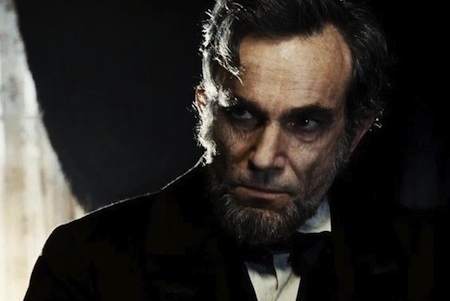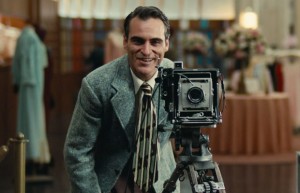[Editor’s note: This is the third in a series of video essays championing the most deserving Oscar nominees. For the full list of video essays, see the Oscar index main page.]
Two-time Oscar winner Denzel Washington earns his sixth career nomination as a drunk airline pilot Whip Whitaker in Flight. Washington’s best moment is the film’s best moment: a riveting sequence where his plane is in free fall. Washington pilots the scene, cutting through the hysterics with a commanding cool. The rest of the film shows his character’s slow descent into alcoholic self-destruction, a chance for Washington to play the ugly anti-hero. But there are few surprises to his portrayal of a self-hating drunk.
Daniel Day-Lewis is also a two-time winner, and he’s the favorite to win another as the title role in Lincoln. It’s a complete performance, fully studied in physical manner, every gesture carefully considered and invested with charismatic warmth. But there’s something kind of self-contained about it, to a lesser degree than Denzel Washington’s. All the same, it’s the kind of performance that you feel obligated to revere, like staring at an animatronic version of the Lincoln memorial.
See for yourself. Watch the video:
[iframe width=”640″ height=”360″ src=”http://www.youtube.com/embed/dZbzgA2xGIk” frameborder=”0″ allowfullscreen]
The contender most likely upset Day-Lewis is Hugh Jackman. His appearance in Les Miz is one of the best things about the film—he does the best job of selling the movie’s live performance concept. Even when his singing is off, it seems to work, as a way of expressing his character’s conflicted moral state. And while the film is aimed to squeeze every teardrop out of its material, Jackman doesn’t dwell on the melodrama. He portrays a man’s journey to salvation with a survivalist urgency and vigor.
But I’m most impressed by two performances that aren’t favorites to win, even though both actors are in nearly every scene of their films, and convey a risk-taking vulnerability that deserves recognition.
Bradley Cooper surprised a lot of people with a breakthrough performance as Pat, a man fighting bipolar disorder in The Silver Linings Playbook. Cooper runs his character through the gauntlet of manias and rages. With a simple shift of his voice, or a darting eye movement, he flips the switch to show his character’s mind jumping off the tracks. But he never overplays these emotions, giving room to reveal the comic absurdity of his condition. And for all his antic outward energy, he also does a lot of taking in. Over the course of this movie, he has to interact and respond to a dozen different characters with their own issues and button-pushing tendencies. There are moments where Pat’s reactions show an ability to see outside himself, which takes his character and Cooper’s performance to another dimension.
Finally there’s Joaquin Phoenix, who lays it on the line as Freddy Quell in The Master. This is a film whose success or failure mostly hinges on the credibility of its lead, whose self-destructive impulses lead to displays of outrageous, alienating behavior. The key question is whether Phoenix is just chewing scenery, or is really tapping into a genuine sense of torment.
Some of his acting choices tread close to gimmickry: his body bent in anguish, his mouth twisted like Popeye the Sailor. But over time, Phoenix reveals what’s behind his grotesque appearance. The crucial scene is his initial psychological processing. Here he his challenged to confront his inner demons and the result is one of the most riveting scenes of the year.
This truly is acting that feels alive like nothing else. It’s here that Phoenix’s character reveals his conscience. And from this point on, Phoenix takes us through a turbulent journey of a soul awaking to recognize itself. The Master is a wild, unresolved movie that at times loses control in its probing of a group movement. But what stays true throughout is Joaquin Phoenix, in a performance totally committed to its character in all its ugliness and wonder.
This is the third in a series of video essays championing the most deserving Oscar nominees. For the full list of video essays, see the Oscar index main page.
Kevin B. Lee is Editor in Chief of IndieWire’s PressPlay Video Blog, Chief Video Essayist for Fandor’s Keyframe, and a contributor to Roger Ebert.com. Follow him on Twitter.





